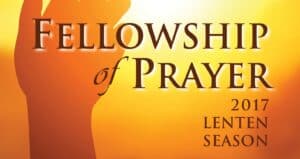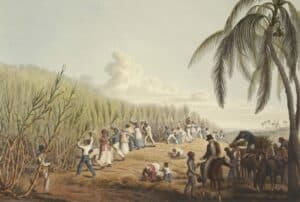For the week of March 14 – 20
March 14 | 4th Sunday of Lent
Introduction to the Week:
Ultimately, a utilitarian view of creation results in wanton destruction of the earth for the purposes of material gain. This attitude often crosses the realm of nature to people. A highly utilitarian view of people may explain why human life is valued so little in businesses that poison humanity (usually the poor and communities of color). Our view of creation may determine why international trade is accompanied by a propensity towards violence, wars, and even genocide. Invariably, the poorest and most marginalized on earth suffer the most from corporate imperialism’s gathering of the earth’s resources. Such actions often result in wholesale racism and injustice towards ethnic minorities. If diversity in creation is not understood and appreciated by those in the modern world, then perhaps it is not difficult to see why diversity is not valued when considering others in humanity. There is a definite connection.
Reflection questions for this week:
- What is the invitation for you from today’s reading?
- Which lies of industrialized progress do you face today?
- What truth must you actively embrace to confront them?
March 14
How do we receive a hundredfold mothers, fathers, brothers, sisters, homes, and children in this life? Surely not simply by attending Christian-oriented events inside a church building. Shalom community is much more intimate than what is offered at the church building. We do not live the bulk of our lives in the church building, but, rather, we live outside the church building, living in our homes, at our jobs and at other places and events. In order to maintain modern American church values, focused around modern notions of time, it is necessary to ignore many biblical passages and toss out a theology of shalom. True fellowship, as expressed in scripture, cannot be practiced within the confines of the current modern system.
March 15
Settler-colonialism completely disrupted natural food cycles equal to or greater than the most drastic poverty suffered by Indigenous Americans by natural disaster. North American Native society would never be the same. The European invasion and westward migration was most often described by words such as “progress,” “civilization” and, later, “modernity.” The Western goal of progress for Aboriginals throughout the centuries was to achieve civilization through assimilation in its most modern forms. Ironically, advanced civilizations had already existed among the First Americans, who had developed endless systems of science, language, rhetoric, mathematics, medicine, environmental ecologies, architecture, economic systems, etc. But Indigenous civilization was not recognized by most Europeans as such. When I teach these things, my students (co-learners) always ask why they have never been taught about the great Native American civilizations or their contributions to the world. My answer is always the same: “You weren’t supposed to find out.”

March 16
“Pristine” is a word people sometimes use to refer to a place that is pure, untouched by human hands or uncorrupted by so-called civilization. President Theodore Roosevelt set aside Yellowstone National Park as part of a pristine wilderness for the nation to enjoy in perpetuity. Others followed, like the most visited, Great Smoky Mountains National Park, and likely the most photographed, Yosemite National Park. These parks and other demarcated wilderness areas and scenic rivers in all their grandeur have never been the “unspoiled wilderness” they were suggested to be. In fact, the whole idea of a naturally unspoiled wilderness is part and parcel of an American Myth that is based on dualistic thinking that separates people from land, breaking the sacred circle or ecosystem.
March 17
Shalom is communal, holistic and tangible. There is no private or partial shalom. The whole community must have shalom, or no one has shalom. As long as there are hungry people in a community that is well fed, there can be no shalom. Where there are homeless and jobless people amidst the employed and wealthy, shalom cannot exist. Shalom is not for the many, while a few suffer, nor is it for the few while many suffer but it must be available for everyone. In this way, shalom is everyone’s concern. Shalom very much defines the common good. In this sense, shalom is also very close to Native American views, which are more communal than individualistic. The connection of the individual to the community and the individual to societal structure has been diminished in most modern Euro-western societies. This shift can be explained in many ways, but the correct exegesis of shalom still remains—shalom produces change for the good of all.
March 18
As modern humans continue mass extraction of the earth’s resources including water, oil, coal, trees, metals and minerals, we fail to realize that we are reaching a tipping point. Humanity should have learned its lessons from the plight of the Dodo and the Passenger Pigeon. Once some things on earth are exploited too long, they can never recover. But in our modern world, human greed does not take into account such boundaries. As people of Faith, we should view every drop of oil, every diamond, every lump of coal, and every source of water with a theological eye. We should try seeing our world through the eyes of the One who created it. All the earth is sacred. It seems quite foolish that only after we have gone too far will we realize that no amount of capital gains, no particular economic system or no modern convenience will be worth the price that we will be forced to pay. Attributed as a Cree Indian Proverb, around Indian country they say, “Only when the last tree has died and the last river has been poisoned and the last fish been caught will we realize we cannot eat money.” I sometimes wonder when modern humanity will drive itself to extinction through greed.

March 19
If we are to rescue our planet, which is currently bent on a trajectory of destruction, then Christians must begin to live out shalom, even by changing their own church cultures. The initial cultural dilemma that presented itself when Native Americans first met the European settlers is the same cultural dilemma we face today, namely, that Native Americans, who do not claim to know Jesus, live life much closer to a shalom-based, biblical Christianity than do the people who claim to be Christians.
March 20
To live out shalom on earth requires a change in the present culture, including and especially among Christians. Shalom must be allowed to take over our decision-making, reform the way we have done things in the past and inform our future. If we are to make a decision to live out shalom in the world, we must begin by changing our American culture. We must remove the legacy of colonialism, not just forget it, but see the connection between theft, injustice, and the abuse of power, including how they help to create poor and oppressed peoples, and how they serve to exploit and destroy the earth.
Dr. Randy Woodley is a public theologian, author, farmer, activist, speaker, story-teller and wisdom keeper. He is a leading voice in the movement for earth justice, and writes and speaks on American culture, faith, justice, race, our relationship with the earth, and Indigenous realities. Randy is a Cherokee Indian Descendant recognized by the Keetoowah Band. This week-long Lenten reflection is excerpted from Drawing Closer to Creator & Creation: An Indigenous Journey Through Lent, which is available for download at Eloheh Indigenous Center for Earth Justice.


